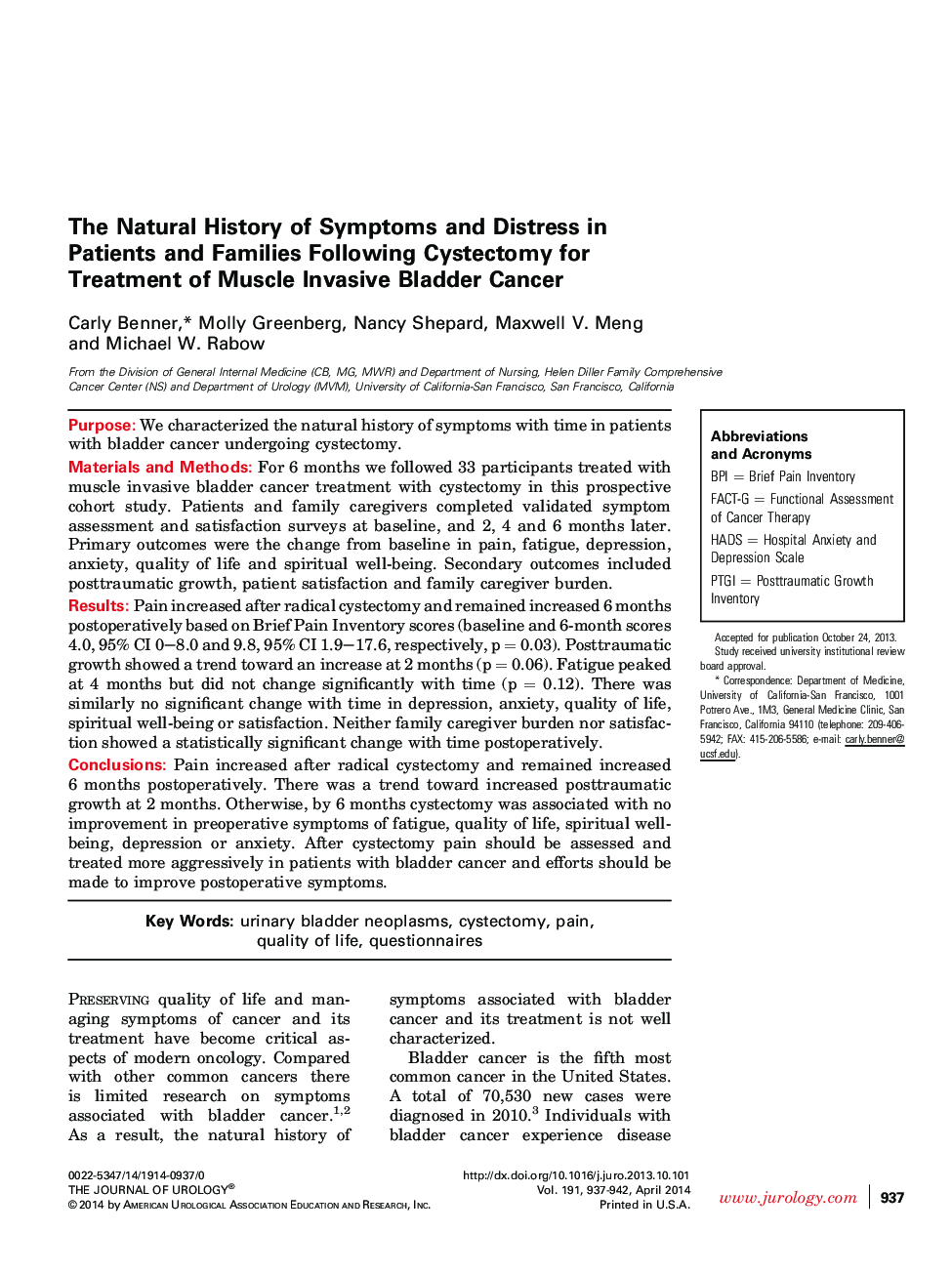| Article ID | Journal | Published Year | Pages | File Type |
|---|---|---|---|---|
| 3865577 | The Journal of Urology | 2014 | 6 Pages |
PurposeWe characterized the natural history of symptoms with time in patients with bladder cancer undergoing cystectomy.Materials and MethodsFor 6 months we followed 33 participants treated with muscle invasive bladder cancer treatment with cystectomy in this prospective cohort study. Patients and family caregivers completed validated symptom assessment and satisfaction surveys at baseline, and 2, 4 and 6 months later. Primary outcomes were the change from baseline in pain, fatigue, depression, anxiety, quality of life and spiritual well-being. Secondary outcomes included posttraumatic growth, patient satisfaction and family caregiver burden.ResultsPain increased after radical cystectomy and remained increased 6 months postoperatively based on Brief Pain Inventory scores (baseline and 6-month scores 4.0, 95% CI 0–8.0 and 9.8, 95% CI 1.9–17.6, respectively, p = 0.03). Posttraumatic growth showed a trend toward an increase at 2 months (p = 0.06). Fatigue peaked at 4 months but did not change significantly with time (p = 0.12). There was similarly no significant change with time in depression, anxiety, quality of life, spiritual well-being or satisfaction. Neither family caregiver burden nor satisfaction showed a statistically significant change with time postoperatively.ConclusionsPain increased after radical cystectomy and remained increased 6 months postoperatively. There was a trend toward increased posttraumatic growth at 2 months. Otherwise, by 6 months cystectomy was associated with no improvement in preoperative symptoms of fatigue, quality of life, spiritual well-being, depression or anxiety. After cystectomy pain should be assessed and treated more aggressively in patients with bladder cancer and efforts should be made to improve postoperative symptoms.
